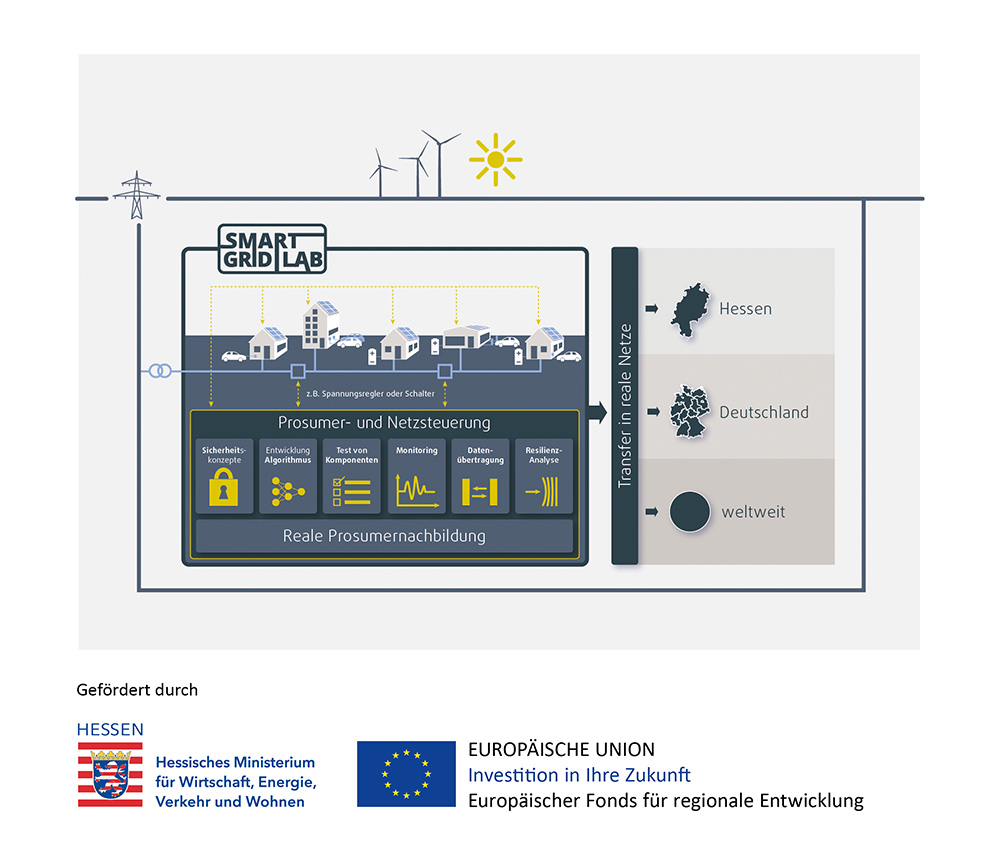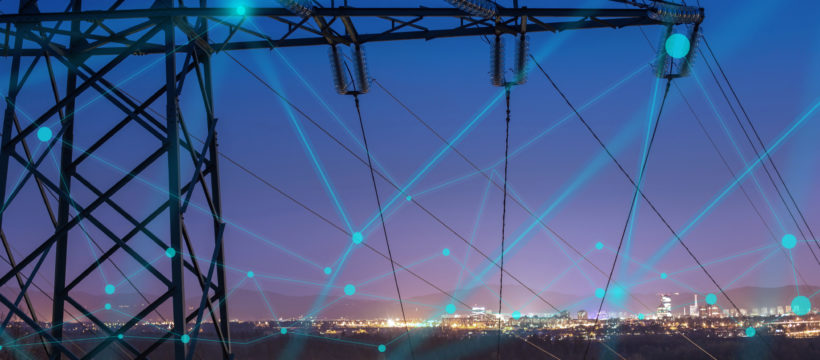How can power grid stability be maintained when large numbers of electric cars are being charged at the same time? Answers to questions like this are to be provided by the EU-funded Smart Grid Lab. Tractebel is a partner.
What stabilises the power grid on days with low electricity generation when large numbers of customers want to charge up an electric vehicle? How can the grid be maintained in the event of storage system outages? What happens when key measurement and control systems are disrupted? How can the grid be protected from hacker attacks? Answers to these questions are being researched by Smart Grid LAB Hessen, initiated by House of Energy, together with its partners, including Tractebel.
The realistic laboratory is being set up in Rödermark, Germany. The project partners will be researching and testing various scenarios for energy systems of the future. The European Regional Development Fund (ERDF) is providing funding amounting to over three million Euros for the project. The project term is three years.
International expert knowledge required
The purpose of the Smart Grid LAB is to test active control processes in the smart grid and all required functionalities under real-world conditions. To this end, joint work is being carried out by experts from the fields of research, engineering, IT security and the manufacture of electrical switching and measurement components in the Germany state of Hessen.
The interdisciplinary team is examining the smart grid from different perspectives. All sources of energy and consumer behaviours are simulations of real-world examples, enabling challenging grid situations to be simulated without risk.
The experts from Tractebel will be contributing their experience from international energy infrastructure projects. They will ensure that the results of the Smart Grid LAB Hessen research are capable of being transferred to national and international grid scenarios.
Future scenarios with renewable energy
In the Smart Grid Lab, Tractebel experts are addressing questions of global relevance: How can stable network quality be maintained with increasing shares of renewable energy, electromobility and decentralised feed-in? The task is to define future scenarios which can be used in the laboratory to test and verify potential technical solutions.
Based on the knowledge gained, Tractebel will create feasible smart grid designs and concepts, which are then to be analysed in terms of technical, economic and regulatory perspectives. In addition, the experts also consider global development projects running in parallel and incorporate new findings in the project. In summary, they will provide recommendations for action with regards to regulation, legislation, economic optimisation, network and generation technology. Through publications and specialist lectures the knowledge gained will be disseminated for further use.

About Tractebel
Tractebel is a global engineering company delivering game-changing solutions for a carbon-neutral future. Insights gathered during our more than 150 years of experience in energy, urban, nuclear and water projects combined with local expertise allow us to tackle complex future-oriented projects. By connecting strategy, design, engineering and project management, our community of 5,000 imaginative experts helps companies and public authorities create positive impact towards a sustainable world, where people, planet and profit collectively thrive. With offices in Europe, Africa, Asia, the Middle East and Latin America, the company registered a turnover of 671 million Euros in 2019. Tractebel is part of the ENGIE Group, a global reference in low-carbon energy and services. www.tractebel-engie.com
Contact
Tractebel Engineering GmbH
Sabine Wulf, Head of Marketing Communications & CSR
Friedberger Straße 173
D-61118 Bad Vilbel
Phone: +49 (61 01) 55 – 0
info-de@tractebel.engie.com

